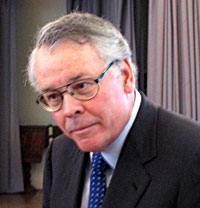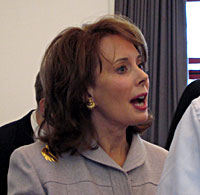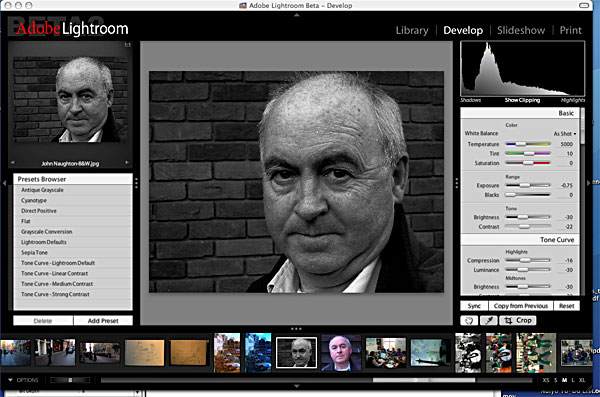Hilarious piece in Slate by Evan Eisenberg. Sample:
In order to serve you better, it will be helpful for us to know which order you belong to. For Primates, press 1. For Cetacea and Proboscidea, press 2. For Jesuit or Dominican, press 3. For Knights Templar or Hospitaler, Knights of Pythias or Columbus, as well as Masons, Elks, and Kiwanis, or if you are unsure, press 4. If you are a Franciscan and have a rotary phone, please stay on the line.
Please key in the model and serial number of the product you are calling about. The model number is the series of 12 letters and digits that is visible when you push the unit away from the wall, work your head into the gap using a crowbar and No. 10 machine oil, and train a beam of ultraviolet light on the lower three centimeters of the right-hand rear surface of the appliance.
If the model number is obscured by dust or cockroach detritus, wipe it with a soft, lint-free cloth soaked in a solution of ordinary rubbing alcohol, Kirschwasser, and formaldehyde. The serial number is the 37-digit number inscribed by means of laser nanotechnology on the underside of the unit and is not visible to the naked eye.
When you have entered both numbers, press the pound key. Note that at any point you may return to the previous menu by hanging up, calling again, and repeating the process until you reach the point just before the point you are at right now…
There’s more. Much more. For example:
Most common problems can be resolved at home by following a simple sequence of diagnostic tests and procedures. We will now guide you through such a sequence. If you wish to skip this section, press 1, 3, and 9 simultaneously while restarting your telephone. Please note: If, while answering these questions, you see smoke or flames or if your chest is warm to the touch, hang up and call 911.
The only thing missing is the ubiquitous assurance that “we really value your call”.
Footnote: After recovering from a bout of hysterical laughter I realised that I’m currently reading Mr Eisenberg’s lovely book, The recording angel: Music, Records and Culture from Aristotle to Zappa.




